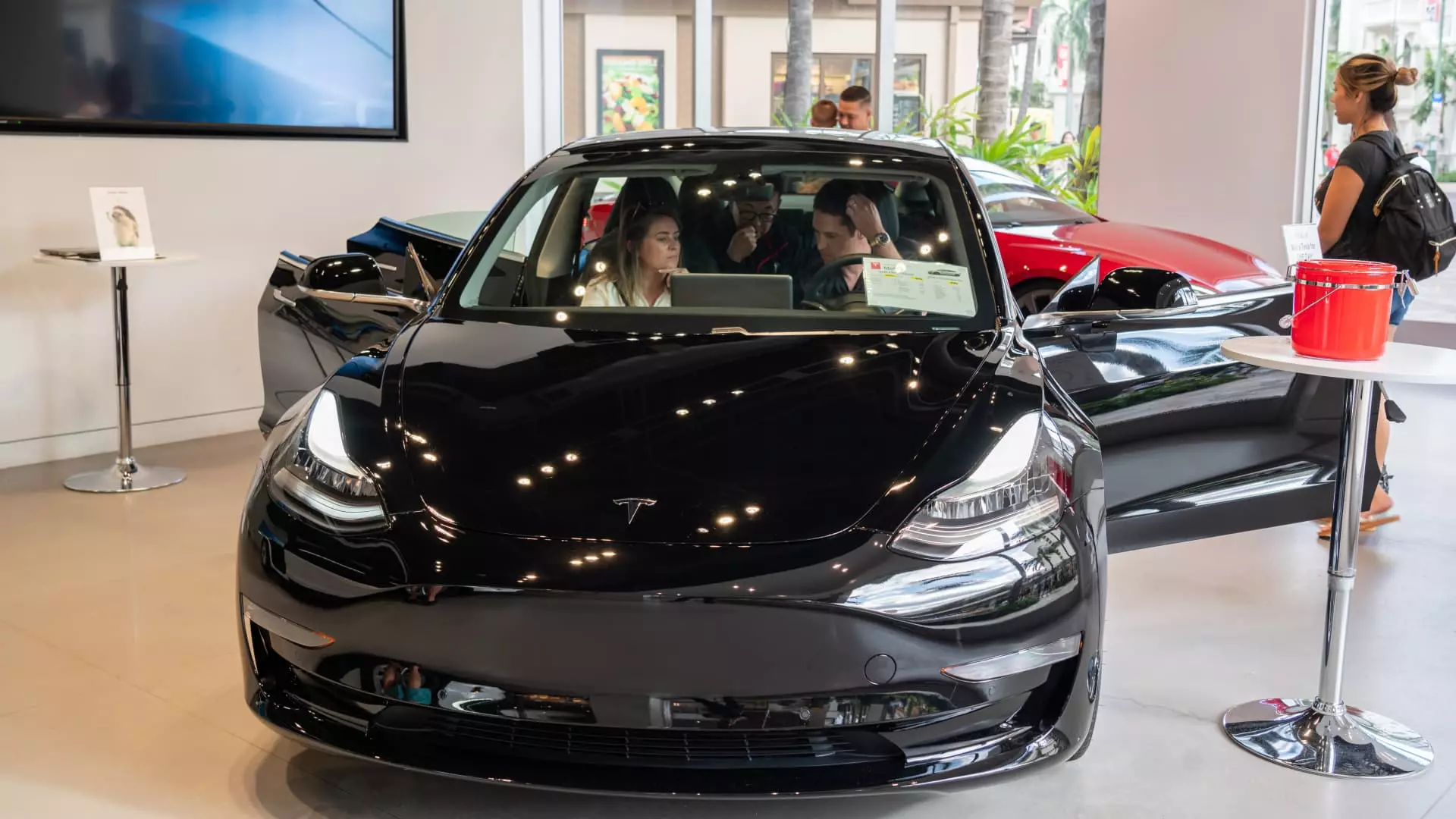Hawaii, a tropical island state known for its stunning landscapes and vibrant culture, is making waves in the realm of electric vehicle (EV) adoption. Surprisingly, Hawaii ranks fifth in overall EV adoption for the year, with 11.9% of new retail vehicles sold through February being electric cars. Additionally, the state claims the third spot in J.D. Power’s “EV Adoption Score,” boasting a score of 33.8, trailing just behind California and Washington. Elizabeth Krear, vice president of the electric vehicle practice at J.D. Power, highlighted that the high adoption rates are a result of availability, emphasizing the importance of consumers having access to EVs that suit their needs.
Hawaii’s enthusiastic embrace of EVs can be attributed to several key factors. Ivan Drury, director of insights at auto research firm Edmunds and a resident of Waikiki on Oahu Island, pointed out that high fuel costs, abundance of renewable energy for charging, and cultural values all play a role in motivating consumers to opt for electric vehicles. Drury remarked on the state’s strong sense of responsibility towards preserving the land, evident in the Hawaiian term ‘Aina’, which reflects a deep pride in environmental stewardship. The popularity of hybrid models in Hawaii has also paved the way for the transition to EVs, with road trip concerns being less of an issue due to Hawaii’s compact size and limited need for long-distance travel.
Gasoline prices in Hawaii, the second-highest in the nation after California, have further incentivized residents to switch to electric vehicles. With an average gas price of $4.72 per gallon, which is $1.10 higher than the national average, the cost savings associated with EV ownership become all the more appealing. The top-selling EVs in Hawaii include the Tesla Model Y, Tesla Model 3, and Ford F-150 Lightning, reflecting the diverse preferences of consumers in the state. Scott Sageman, a Tesla Model 3 owner residing on Hawaii’s Big Island, expressed his satisfaction with the transition to an electric vehicle and the freedom from traditional gasoline costs.
Despite Hawaii’s progress in EV adoption, challenges remain, mirroring those faced on the U.S. mainland. Issues such as lack of charging infrastructure, affordability concerns, and limited vehicle options continue to hinder widespread adoption of electric vehicles. A recent Gallup poll revealed a decline in interest among U.S. adults considering purchasing an EV, with under half of respondents expressing openness to the idea. However, Russell Wong, regional vice president of Aloha Kia’s dealerships in Hawaii, remains optimistic about the growing customer interest in EVs, particularly with the introduction of new models like the EV9 SUV and the popular Niro.
The average price of purchasing an EV from a franchised dealer in Hawaii has seen a slight decrease this year, dropping to over $62,600 from the previous year’s figure. Despite this reduction, EV ownership remains a significant investment compared to traditional vehicles, attributing to the higher adoption rates among upper-income Americans. Drury emphasized the polarized nature of EV adoption, noting that those who can afford to make the switch benefit greatly from the cost savings and environmental advantages, while others may struggle to justify the higher upfront costs.
Hawaii’s remarkable ascent in EV adoption serves as a testament to the state’s commitment to sustainability, renewable energy, and cultural values. While challenges persist, such as affordability and charging infrastructure, the increasing interest in electric vehicles signals a promising future for Hawaii’s transition towards a cleaner, greener transportation landscape.

